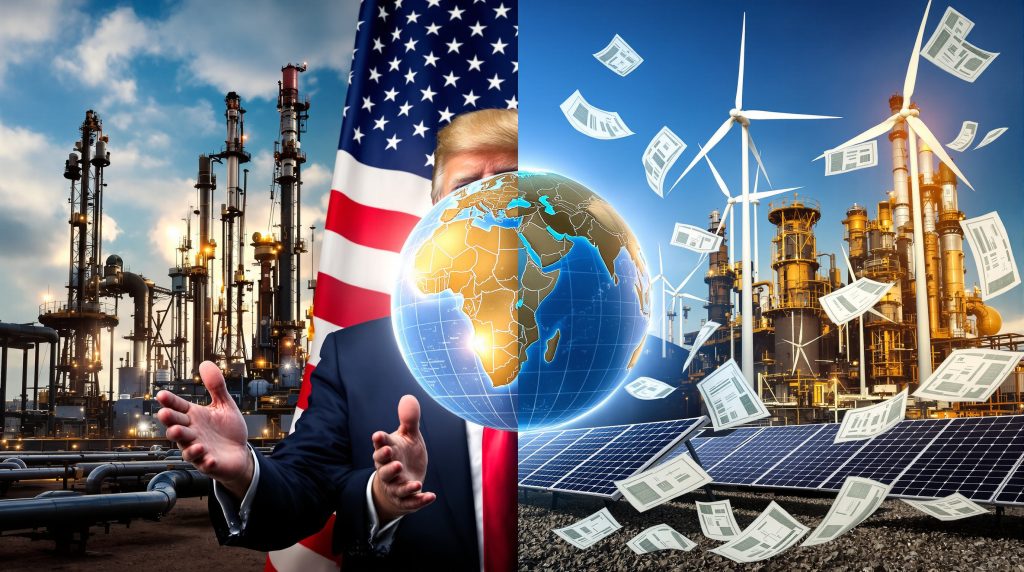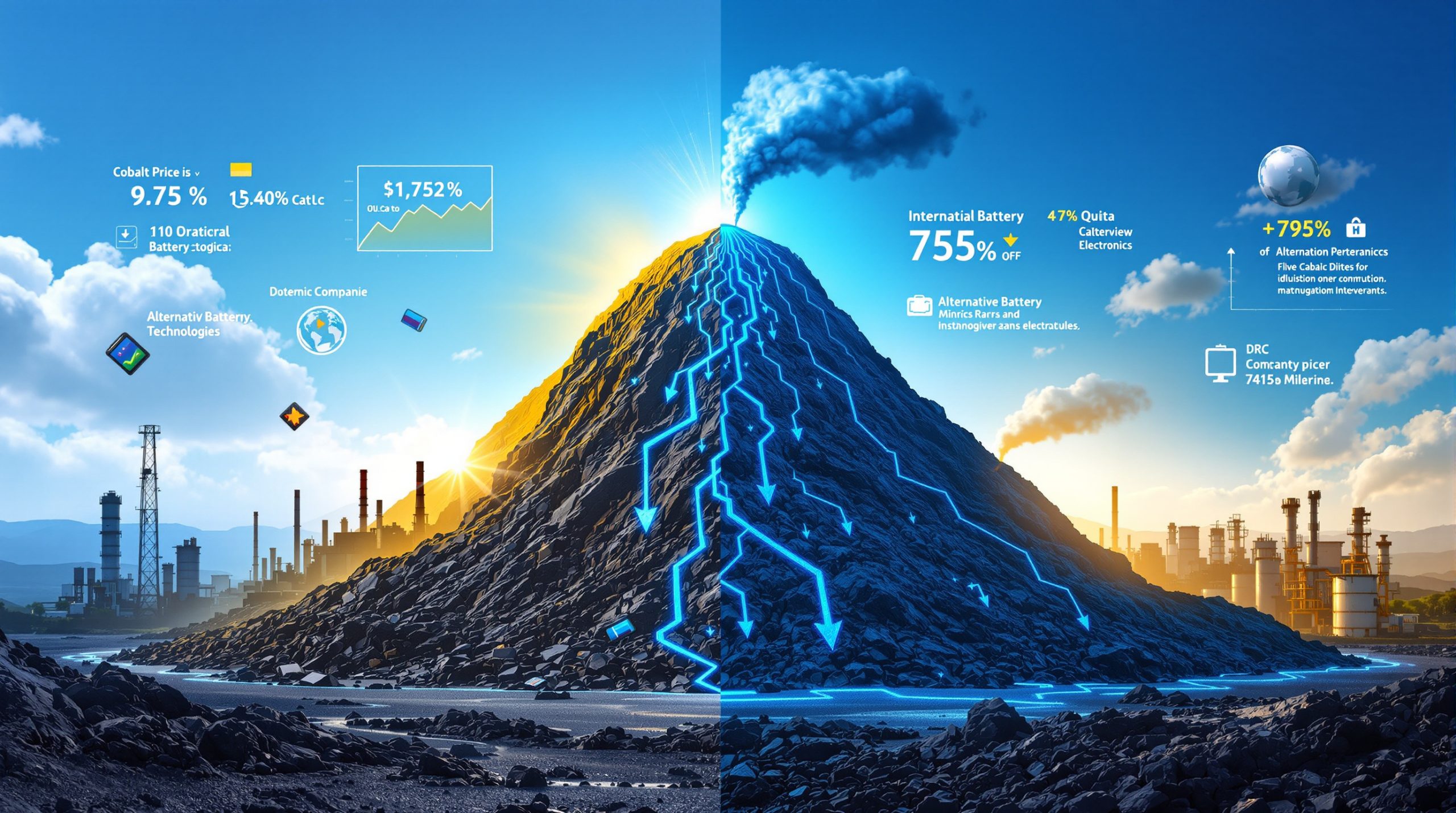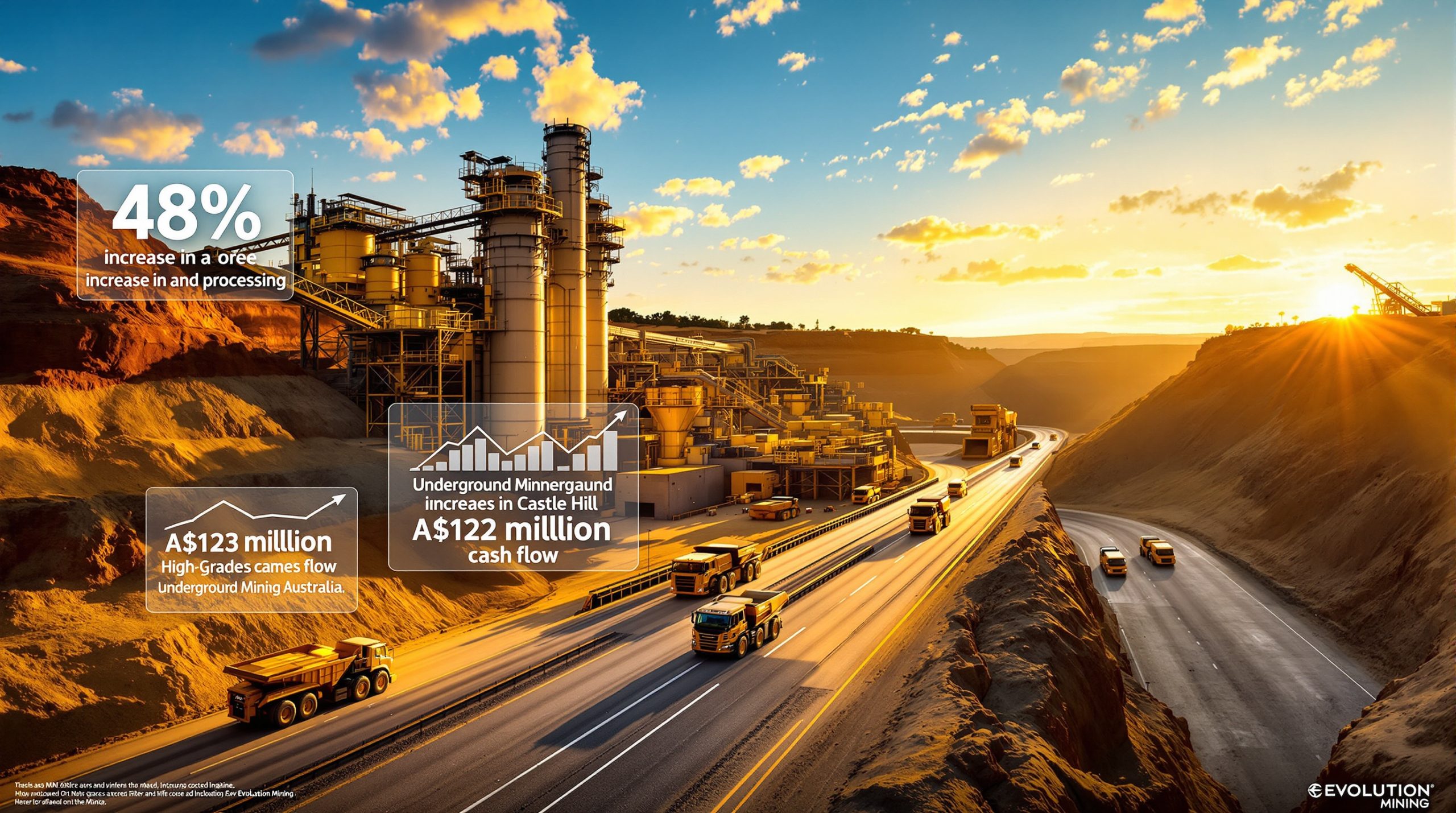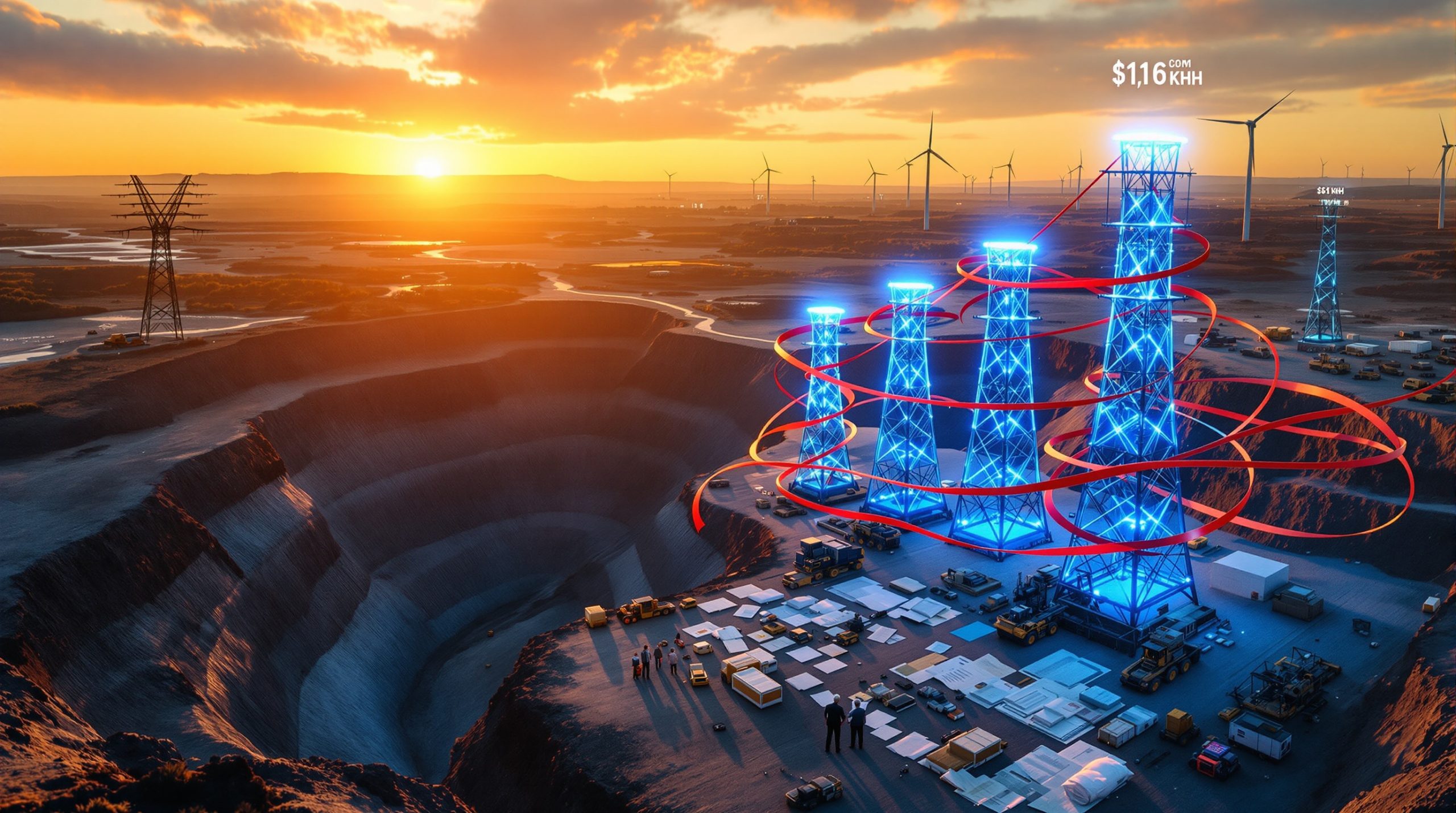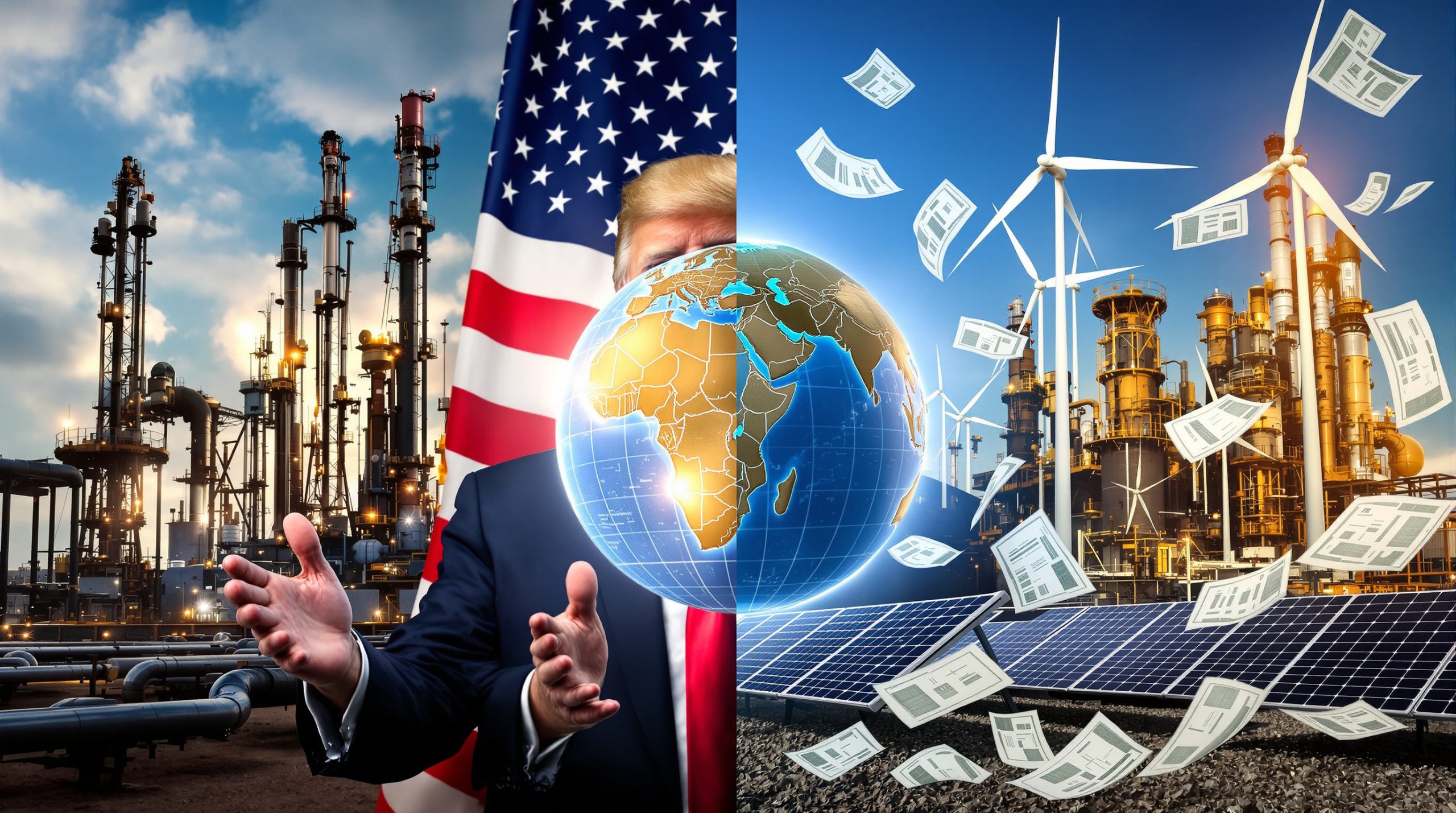Trump's World Bank Policy Shift: Redefining Fossil Fuel Financing Priorities
The Trump Administration is actively advocating for the World Bank to reverse its 2019 policy restricting financing for new fossil fuel projects. This push specifically targets increased funding for upstream oil and gas developments, prioritizing energy security concerns over climate considerations. Trump calls on World Bank to reconsider oil and gas financing as part of a significant potential shift in international development financing priorities that could reshape global energy investment patterns.
How Did the World Bank's Fossil Fuel Financing Policy Evolve?
The Original Policy Restriction
In 2017, the World Bank Group announced it would cease financing upstream oil and gas projects after 2019, marking a substantial shift in its lending priorities. This decision aligned with broader international climate commitments and growing pressure on financial institutions to reduce fossil fuel exposure.
Limited Exception Framework
The World Bank's policy did include narrow exceptions for gas projects in the poorest countries where:
- Clear benefits for energy access could be demonstrated
- Projects aligned with countries' Paris Agreement commitments
- Exceptional circumstances justified the investment
These carve-outs were designed to balance climate goals with development needs in regions with severe energy poverty, though they were intended to be rarely invoked.
Why Is the Administration Pushing for Policy Reversal?
Energy Security Prioritization
The administration's push centers on prioritizing energy security considerations, particularly for developing nations. Officials argue that access to reliable energy infrastructure remains essential for economic development and poverty reduction—core missions of development banks.
"All-of-the-Above" Energy Strategy
A Treasury Department spokesperson characterized the approach as an "all-of-the-above energy strategy" that would reconnect multilateral development banks to their fundamental missions of fostering economic growth and alleviating poverty.
Focus on Upstream Gas Development
The initiative particularly emphasizes financing for upstream natural gas projects, which the administration views as critical infrastructure for energy-poor nations. This focus on gas reflects its position as a transition fuel with lower carbon emissions than coal or oil, although some experts remain concerned about potential OPEC production impact on global markets.
How Does This Fit Into Broader Energy Policy Shifts?
Banking Sector Realignment
The push coincides with significant shifts in the financial sector's approach to climate commitments:
- Several North American banks and asset managers have withdrawn from net-zero alliances
- The Net-Zero Banking Alliance (NZBA) has seen major U.S. banks exit
- Financial institutions previously committed to aligning lending with 2050 net-zero goals are reconsidering these positions
Multilateral Development Bank Pressure
The U.S. is reportedly extending similar pressure to other development banks beyond the World Bank, encouraging them to finance fossil fuel projects including gas pipeline infrastructure. This approach aligns with broader Trump's trade impact policies that prioritize domestic energy independence and global influence.
What Are the Potential Implications of This Policy Shift?
For Global Climate Goals
A reversal of the World Bank's fossil fuel financing restrictions could significantly impact global climate efforts:
- Increased funding for new oil and gas infrastructure could lock in decades of carbon emissions
- The policy shift might undermine the Paris Agreement's goal of limiting global warming
- Development banks' influence extends beyond direct financing to setting standards for other lenders
For Developing Nations
The implications for developing countries present complex trade-offs:
| Potential Benefits | Potential Drawbacks |
|---|---|
| Improved energy access | Increased climate vulnerability |
| Economic development opportunities | Stranded asset risks as clean energy costs fall |
| Enhanced energy security | Delayed transition to renewables |
| Infrastructure development | Environmental and social impacts |
For Energy Markets
The policy shift could reshape global energy investment patterns and potentially influence oil price rally dynamics:
- Increased development bank financing could unlock additional private capital for fossil fuel projects
- Projects previously deemed unbankable might secure funding
- Regions with undeveloped gas resources could see accelerated exploration and production
- Competition between fossil fuels and renewables for limited development financing
How Has the Financial Sector's Stance on Fossil Fuels Changed?
Historical Pressure on Banks
In recent years, financial institutions faced mounting pressure to:
- Reduce exposure to fossil fuel investments
- Align lending portfolios with Paris Agreement goals
- Implement ESG (Environmental, Social, Governance) criteria in investment decisions
- Join climate-focused alliances with specific emissions reduction targets
Recent Reversal Trends
The financial landscape has shifted dramatically, with tariffs impact investment decisions becoming increasingly significant:
- Major U.S. banks have withdrawn from climate alliances
- Legal challenges from Republican-led states targeted ESG investment practices
- Shareholder pressure has increasingly focused on financial returns over climate considerations
- Regulatory scrutiny of climate commitments has intensified
What Does This Mean for Global Energy Development?
Competing Visions of Energy Transition
The policy debate highlights fundamentally different approaches to energy development:
-
Climate-First Approach: Prioritizes rapid decarbonization through restricted fossil fuel financing and accelerated renewable deployment
-
Energy Security Approach: Emphasizes reliable energy access through diverse sources including fossil fuels while pursuing longer transition timelines
Balancing Development and Climate Goals
The core tension remains how to:
- Address immediate energy poverty in developing nations
- Support economic growth and industrialization
- Meet climate commitments and reduce emissions
- Manage transition risks and avoid stranded assets
Furthermore, recent US economy insights suggest that energy policy decisions will have significant implications for inflation and economic growth in the coming years.
What Are the Next Steps in This Policy Debate?
Institutional Decision-Making Process
Any formal change to World Bank policy would require:
- Board-level discussions among member countries
- Assessment of alignment with the bank's climate commitments
- Evaluation of development impact potential
- Consideration of stakeholder feedback
Potential Compromise Approaches
Middle-ground positions might include:
- Expanded but conditional financing for natural gas as a transition fuel
- Tiered approaches based on country development status
- Requirements for carbon capture or emissions mitigation
- Paired investments in renewable capacity alongside fossil fuel projects
FAQ: World Bank Fossil Fuel Financing
How significant is World Bank financing for global energy projects?
While the World Bank's direct financing represents only a portion of global energy investment, its policies have outsized influence by setting standards for other lenders and signaling investment priorities. The bank's involvement often helps projects attract additional private financing by reducing perceived risk.
Would increased fossil fuel financing conflict with the World Bank's climate commitments?
Yes, a significant expansion of oil and gas financing would create tension with the World Bank's climate goals, which include dedicating 45% of its annual financing to climate-related projects by 2025. However, proponents argue that natural gas in particular can serve as a transition fuel that reduces emissions compared to coal while supporting development.
How might developing countries be affected by this potential policy shift?
Developing nations with significant fossil fuel resources could gain access to development financing previously unavailable for extraction projects. However, the long-term implications include potential stranded asset risks as the global economy transitions toward lower-carbon energy sources, potentially leaving these countries with devalued infrastructure.
What alternatives exist for balancing energy access and climate goals?
Potential alternative approaches include:
- Accelerated financing for renewable energy in developing countries
- Support for hybrid energy systems combining renewables with limited gas infrastructure
- Investment in grid modernization and energy efficiency
- Technology transfer programs for clean energy solutions
Balancing Energy Security and Climate Action
The Trump Administration's push for the World Bank to reconsider its fossil fuel financing restrictions highlights the ongoing tension between immediate energy security concerns and longer-term climate goals. This debate reflects broader questions about how to balance development priorities with environmental sustainability, particularly for nations still struggling with energy poverty.
As global institutions navigate these competing priorities, the outcome will significantly influence both development pathways for energy-poor nations and the trajectory of global emissions. Trump calls on World Bank to reconsider oil and gas financing as part of a strategy that will likely require nuanced approaches that acknowledge legitimate energy security concerns while maintaining momentum toward a lower-carbon future.
Further Exploration
Readers interested in learning more about international development financing and energy policy can also explore related educational content from Oilprice.com, which offers ongoing coverage of global energy markets and policy developments. For additional perspectives on fossil fuel financing, Climate Change Resources provides comprehensive information on the environmental implications of different energy sources.
Ready to Get Ahead of the Next Major Mining Discovery?
Discover how leading investors are capitalising on significant mineral discoveries before the broader market through Discovery Alert's proprietary Discovery IQ model, turning complex mineral data into actionable insights. Visit Discovery Alert's dedicated discoveries page to understand why historic discoveries can generate substantial returns and begin your 30-day free trial today to position yourself ahead of the market.
